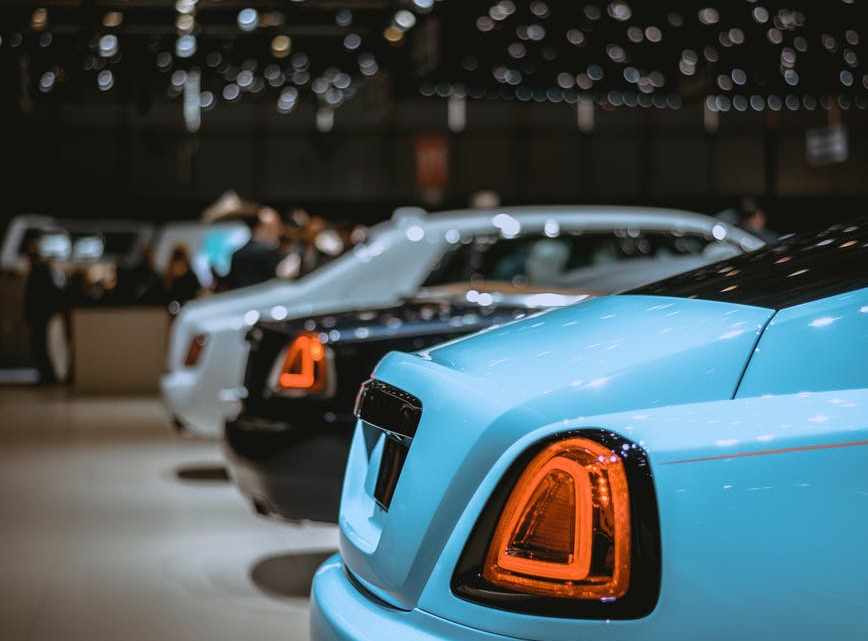Things to Consider Before Buying a New Car
March 25, 2022Modern cars have much more security features and technological gadgets, such as LED tail lights custom, than versions from a decade earlier. And, let’s face it, dealing in rusted-out junk with filthy seats is a tempting proposition.
If you’re looking for a new car, you’ve probably got a lot of questions. The number of elements to consider might be intimidating, whether you’re trying to figure out which automobile to buy as well as how much you can afford.To get you started, we’ve put up a list of eight things to consider before purchasing a car.
Table of Contents
1. Determine Your Needs and Wants
After you’ve determined how much you should invest in a vehicle, consider what you need most at this point in your life. A checklist for a single individual in their twenties may differ from one for a family with children.
Generate a checklist of non-negotiables in terms of car size, gas mileage, safety features, and other amenities. This list will assist you in determining what type of car will best meet your requirements. Then make a list of whatever you want and don’t really need, such as technology, conveniences, and extras. When investigating specific models, bear this list in mind.
2. Review Your Budget
Whenever you start looking at the current models and doing test drives, you’ll have to figure out your price plan. And how you’ll expect to be paid for your new car. What is the lowest rate of interest you can search for? Do you have any money set aside for a deposit?
To figure out how much you can spend, look at your latest credit reports and monthly bills or bank statements. Make careful to factor in the ongoing expenditures of owning a car, such as maintenance and gas. Some automobiles demand premium fuel, which means that every time you fill up, you’ll pay extra. If you buy a car with pricey parts, it will probably make you spend more to restore in the future. Make sure you’ll be able to finance the car you chose for the rest of your life.
The price of buying a vehicle includes more than simply the car’s price. Prepare for additional costs like application fees, sales tax, dealer fees, and optional add-ons. If you are sourcing a car, how to find a supplier in China can be your top concern. You might need to find and bargain with a reputable automobile supplier.
If you’re financing your acquisition, a car payment calculator will help you estimate your monthly cost. When you go to the showroom with a specific budget in mind, you can avoid being forced into buying a vehicle that you cannot afford.
3. Research the Best Brands and Models
So now you have what you require, you may select the specific type of vehicle or brand that best suits your requirements. Compare automobile listings online to identify vehicles with positive reviews, high durability, and excellent safety ratings.
While you may wish to conduct preliminary research online, it’s also critical to speak with a professional and view your alternatives in person. Take a test drive in your top two or three selections at a local dealership. Pay note to how quickly the car accelerates, how comfortable it is to drive, and how well it handles. This is also an excellent opportunity to ask additional concerns you may have regarding the vehicle’s construction or operation.
4. Get Insurance Quotes
When it comes to determining premiums, insurance companies look at the type and model of your car, so your new car could be much more or even less costly than a traditional old one. To locate the best bargain, find the vehicle’s VIN number and seek quotes from your existing insurance carrier as well as a few other companies.
You can typically save money by bundling your auto insurance with any other plans you may have, such as homes or renters insurance.
5. Keep Ongoing Costs in Mind
If you own an automobile you want to trade in, be sure you know how much it is worth before visiting a dealership. If you’re not certain how much it’s worth, look it up on the listing websites and bring the results to the dealership with you.
If you don’t think you’re being treated fairly, don’t be afraid to try a new dealer and walk away to seek out another dealer. You can also decide whether you’d rather sell the automobile on your own and utilize the proceeds as a down payment rather than trading it in.
6. Check Your Credit
Check your credit score before applying for a loan. If you’re a PSECU member, you can use our complimentary credit score service to check your score.
If your lender adopts risk-based lending, a high credit score may result in a cheaper cost of borrowing on your loan. The rate you pay is determined by your credit score in this scenario. Your rate will improve as your score improves. If you don’t have a strong credit history, you should work on improving it before applying for a loan.
7. Consider an AutoDraft
Prequalifying for a car loan could save you cash to help you receive a better rate of interest on your mortgage. It tells you how much you’re entitled to spend before you start the car-buying procedure.
PSECU can swiftly prequalify you for an auto loan – frequently on the same day you qualify. Remember to factor in not only the vehicle’s retail price, but also any subscription, taxes, or fees when seeking the amount you wish to borrow. All current rates are calculated on a cost of the product of up to 130 percent. Add-ons could push your loan past 100% and raise your interest rate.
8. Consider Your Average Usage
We’d all love to possess that hulking SUV that turns off-roading look effortless. After all, who hasn’t fantasized about driving out into the sunset with a particular someone on the passenger side?
While that is wonderful as a fantasy, it is better to be far more practical when making a major purchasing decision. Would you depend on how beautiful a tin can capping machine is and neglect its practical operations? Not at all!
Pose a simple query to yourself. Where will you be driving your automobile the most? Is it better to be in the city or on rough terrain? Do you still need an SUV if the solution is a long commute to work?
Of all, for most individuals, a car (or a bike) is more than just a means of transportation; it’s also a matter of self-expression, a way of displaying one’s identity. That’s entirely natural, and it’s perfectly great if you want to spend extra more on something. However, before making a final selection, consider issues such as the operating costs, cost of ownership, and parking issues, among others.




You have explained it very well! This points are so important if you are going to buy a new car. I would like to suggest one more point and that is to take a full complete test drive the car before purchasing it, by this you will be sure about if you want to buy this car or not.
Thanks for sharing. I read many of your blog posts, cool, your blog is very good. https://www.binance.info/ka-GE/join?ref=JHQQKNKN
Localize por meio do software de sistema “Find My Mobile” que acompanha o telefone ou por meio de software de localização de número de celular de terceiros. https://www.mycellspy.com/br/tutorials/how-find-my-partner-phone-activity-on-my-phone/
Thanks for sharing. I read many of your blog posts, cool, your blog is very good.